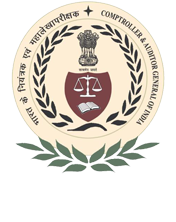Audit Reports

Jammu and Kashmir State (Upto 30-Oct-2019)
Report of 2011 - Performance Audit on Civil and Commercial of Government of Jammu Kashmir
Overview
This Report contains Civil and Commercial chapters comprising 19 paragraphs and six performance reviews (including one CCO-based review of Public Works Department). Copies of draft paragraphs and reviews were sent to the concerned Commissioner/Secretary of the Department concerned by the Principal Accountant General with a request to furnish replies within six weeks. However, in respect of 16 draft paragraphs and five performance reviews included in the Report, no replies were received from the Commissioners/Secretaries concerned. A synopsis of the important findings contained in the Report is presented in the overview.
Education is one of the most important indicators of social progress of a Nation. Both the State and GOI have been spending enormous funds on increasing enrolment, retention and providing quality education at the elementary level. To achieve this, the Government of India (GOI) introduced the Right of Children to Free and Compulsory Education (RTE) Act 2009 from 1st April 2010. The RTE Act had not been extended to J&K State as the 42nd constitutional amendment had not been adopted by the State. The education system in the State is governed by the Jammu and Kashmir School Education Act 2002 which contains provisions similar to the RTE Act. To achieve the goal of education for all, the GOI introduced two flagship programmes viz. Sarva Shiksha Abhiyan (SSA) and Mid-day Meal (MDM) scheme to support the State in creating, developing and strengthening the Elementary School System and increasing enrolment, retention and creation of necessary infrastructure for the school going children. Audit observed poor utilization of funds under the programmes resulting in huge unspent balances at the close of the financial years at all the levels. The department had failed to provide basic amenities and facilities to students. Some of the highlights of audit findings are summarised below.
The Department had not prepared any perspective plan. Annual plans prepared were not based on inputs from school/Zonal level or Household Surveys. NGO's were not involved at any level.
At the State level 3256 habitations (12 per cent) were without any schooling facility. Though Teacher Pupil ratio in test-checked schools was 1:12 and within the prescribed norm of 1:40, 718 schools out of 7016 schools in test-checked districts were run by single teachers.
Download Audit Report
-
Report of 2011 - Full Report
 (3.32 MB)
Download
(3.32 MB)
Download
-
Index
 (0.17 MB)
Download
(0.17 MB)
Download
-
Preface
 (0.01 MB)
Download
(0.01 MB)
Download
-
Overview
 (0.06 MB)
Download
(0.06 MB)
Download
-
Chapter 1 - Performance Reviews
 (1.92 MB)
Download
(1.92 MB)
Download
-
Chapter 2 - Audit of Transactions
 (0.15 MB)
Download
(0.15 MB)
Download
-
Chapter 3 - Chief Controlling Officer (CCO) Based Audit
 (0.22 MB)
Download
(0.22 MB)
Download
-
Chapter 4 - Commercial Activities
 (0.57 MB)
Download
(0.57 MB)
Download
-
Appendices
 (0.39 MB)
Download
(0.39 MB)
Download

